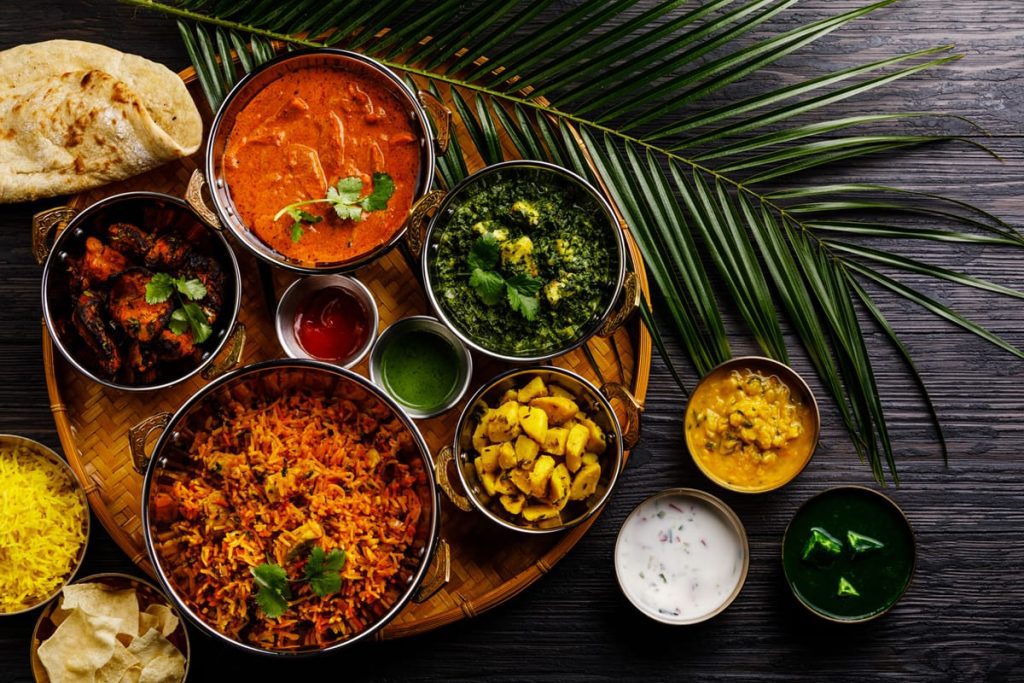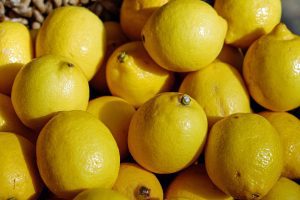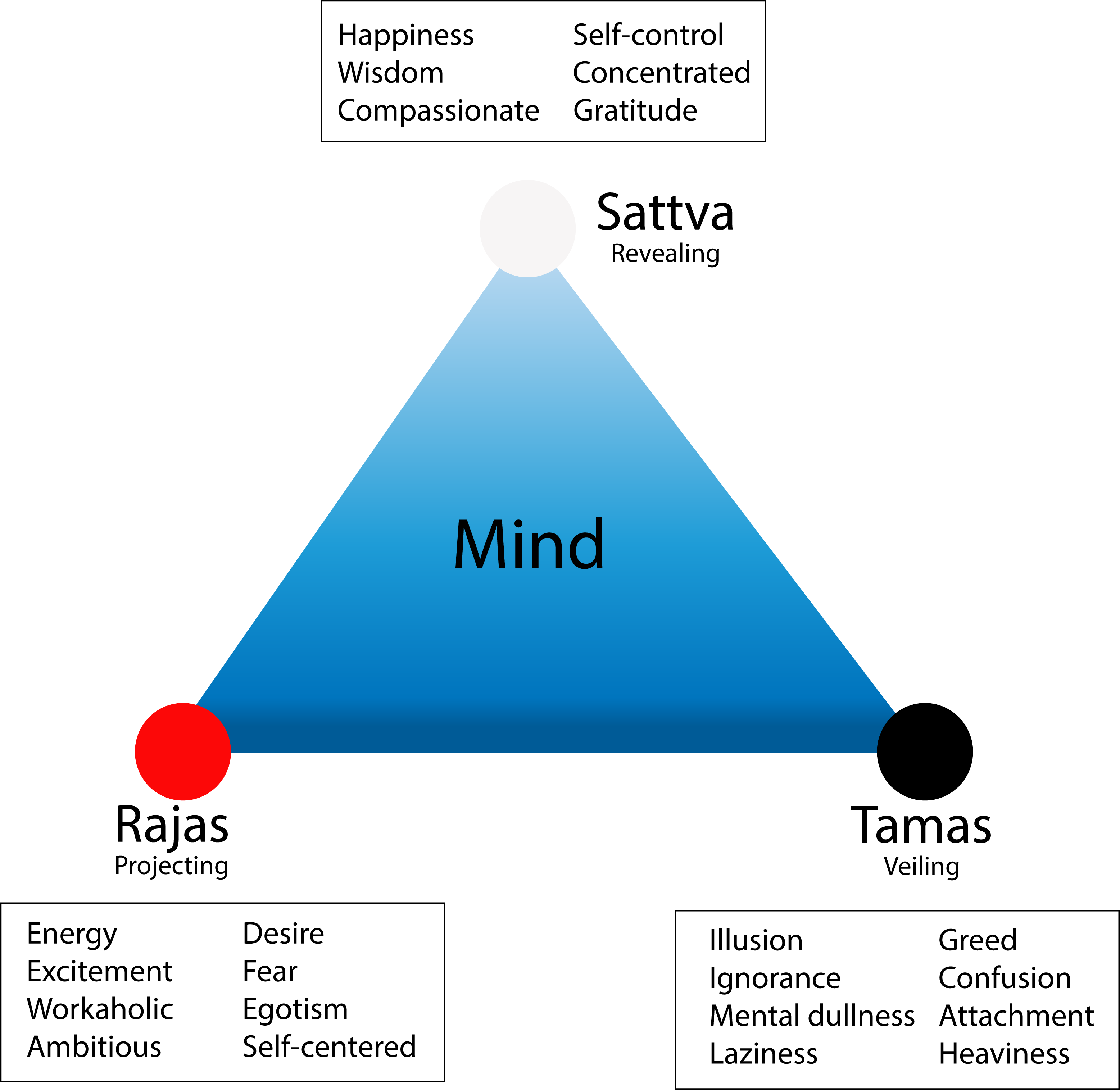The Six Tastes (Sadrasatmaka Ahara)

In Ayurveda there are six tastes: sweet, sour, salty, pungent, bitter and astringent. Each of these tastes has a distinct effect. Depending on your constitution and the season, these effects can either contribute to or disturb your state of balance. Too much or too little of these foods can cause impurities in the body which can lead to poor health. Ayurvedic food focuses on the combination of flavors and foods so that we enjoy greater satisfaction and energy.
The six tastes of food are derived from the five element influences: ether, air, fire, water, and earth.
To strengthen the doshas, choose foods with the tastes which influence them. To reduce dosha effects, choose the other tastes.
The six tastes are: sweet, sour, salty, bitter, pungent and astringent.
They are present in substances. Each one produces more strength (for the body) than the one which follows it.
THE EFFECT OF THE TASTES ON THE BODY
How Taste Effects the Doshas Legend:
↑ – Increase/Aggravates
↓ – Decrease/Pacifies
Sweet (Madhura)
Increases Kapha, reduces Vata and Pitta. It forms a coating inside the mouth, builds and strengthens all of the Dhatus, nourishes the body and senses, improves circulation and complexion, mitigates poisons, strengthens the heart, acts as a demulcent, expectorant, mild laxative, relieves thirst, heartburn and increases milk production. If used in excess, it produces obesity, weak digestion, headache, cough, worms, etc.
How Taste Effects the Doshas: Kapha: ↑ PItta: ↓ Vata: ↓
Elements: Earth + Water
Examples of Sweet: Complex carbohydrates, sweet fruits (like mango, grapes), grains, ghee, milk, honey, root vegetables (like potato, beets), sugar, oils, and meats.

Sour (Amla)
Increases Kapha and Pitta, reduces Vata. It is hot in potency but cold to touch, stimulates acid secretions, kindles hunger, helps digestion, reduces gas, increases circulation, works as an anticoagulant, and sharpens the senses. If used in excess, it produces defects of vision, bleeding diseases, paleness, itching, severe thirst, etc.
How Taste Effects the Doshas: Kapha: ↑ PItta: ↑ Vata: ↓
Elements: Earth + Fire
Examples of Sour: Yogurt, limes, and other sour fruits like āmalakī, alcohol, vinegar, and cheese, etc.
Salty (Lavana)
Increases Kapha and Pitta and reduces Vata, makes food tasty, is penetrating and hot in potency, strengthens Agni (dipana), improves digestion (pacana), maintains electrolyte balance in the body, acts as a laxative, sedative, reduces the stiffness, hardness and removes the blockage. It is calming to the nerves and Vata and relieves spasms. Salt baths remove toxins from the body. It makes the dhatus flabby due to water retention, increases thirst and salivation, vitiates the blood, produces grey hairs, baldness, and reduces strength and Ojas if used in excess.
How Taste Effects the Doshas: Kapha: ↑ PItta: ↑ Vata: ↓
Elements: Fire + Water
Examples of Salty: All salts: Rock, sea, gypsum, and black salts.
Pungent (Katu)
Improves metabolism, helps digestion and absorption, reduces congestion, improves circulation, relieves pain and muscle tension, works as an anticoagulant, cleanses the mouth, raises body temperature, kills worms, promotes sweating, dries wounds, reduces excess fluids from the body. If used in excess, it produces thirst, fainting, weakness of the body, strength, and semen, severe emaciation, burning sensation, etc.
How Taste Effects the Doshas: Kapha: ↓ PItta: ↑ Vata: ↑
Elements: Air + Fire
Examples of Pungent: Jalapenos, ginger, black pepper, pippalī, cloves, cayenne pepper, garlic, and wasabi (horseradish).
Astringent (Kasaya)
Reduces Kapha and Pitta and increases Vata. Constricts the blood vessels, stops bleeding and flow, promotes healing, acts as an antidiuretic, antibiotic, antibacterial, and hemostatic, and is constipating, drying, improves the skin texture. Indulged into excess, it obstructs tissue pores, withholding of flatus, feces, and urine, hemiplegia, convulsions, etc.
How Taste Effects the Doshas: Kapha: ↓ PItta: ↓ Vata: ↑
Elements: Air + Ether
Examples of Astringent: Alum, the peel of a fruit, unripe banana, pomegranate peel, turmeric, goldenseal, leafy green vegetables, blueberries, cranberries, beans, etc.
Bitter (Tikta)
Decreases Kapha and Pitta and increases Vata. It is good for anorexia, kindles hunger, is good for digestion, purifies blood, detoxifies the body, acts as an antibiotic, antiseptic, anthelmintic, antipyretic. It absorbs excess fat, oiliness, fluids, opens up channels, purifies breast milk, reduces body temperature, and increases intelligence. It also works as a liver tonic. Used in excess, it produces weakness, exhaustion, giddiness, etc.
How Taste Effects the Doshas: Kapha: ↓ PItta: ↓ Vata: ↑
Elements: Air + Earth
Examples of Bitter: Leafy vegetables, neem, aloe, goldenseal, gentian root, fenugreek, black tea, myrrh, and bitter melon
Exceptions
● Generally, sweet substances increase Kapha except for old rice, barley, wheat, green gram, honey, etc.
● Sour substances generally increase Pitta except for pomegranate, gooseberry, etc.
● Salts are generally bad for the eyes except for Himalayan pink salt.
● Bitter-pungent tastes generally increase Vata and are non-aphrodisiacs, except for guduci, sponge gourd, dry ginger, long pepper, and garlic.
● Astringent tastes are generally cold in potency and cause obstruction except for haritaki/Terminalia chebula.
The Effect of the Tastes on the Mind & Emotions
Tastes affect not only our body but our mind also. As they have an effect on our emotions, it is important not to overindulge.
Madhura: Sweet
Action on Mind: Compassion, satisfaction
Effect of Overindulgence: Attachment, possessiveness
Katu: Pungent
Action on Mind: Extroversion, boldness
Effect of Overindulgence: Anger, violence, hatred
Amla: Sour
Action on Mind: Discrimination, stimulation
Effect of Overindulgence: Envy, jealousy and anger
Kasaya: Astringent
Action on Mind: Introversion
Effect of Overindulgence: Insecurity, fear
Lavana: Salty
Action on Mind: Confidence, zest for life
Effect of Overindulgence: Greed, over ambition
Tikta: Bitter
Action on Mind: Dissatisfaction, isolation
Effect of Overindulgence: Grief, sorrow
The Effect of Too Little Taste
| Taste | Effect of Underindulgence |
|---|---|
| Madhura: Sweet | Weak Dhātus, debility |
| Amla: Sour | Acid imbalance |
| Lavaṇa: Salty | Water imbalance |
| Kaṭu: Pungent | Weak digestion, poor circulation, cold extremities |
| Kaṣāya: Astringent | Excessive discharge |
| Tikta: Bitter | Accumulation of toxins |
Dietary Recommendations For The Doshas
Vata
Prefer: Sweet, Sour, and Salty
Avoid: Bitter, Pungent and Astringent
Balanced Craving: Sweet, Sour, and Salty
Imbalanced Craving: Pungent, Astringent and Bitter
Pitta
Prefer: Sweet, Astringent, and Bitter
Avoid: Pungent, Sour, and Salty
Balanced Craving: Sweet, Astringent, and Bitter
Imbalanced Craving: Sour, Salty, and Pungent
Kapha
Prefer: Pungent, Astringent and Bitter
Avoid: Sweet, Sour, and Salty
Balanced Craving: Pungent, Astringent and Bitter
Imbalanced Craving: Sweet, Sour, and Salty
Vipaka: Post Digestive Effect
The special transformation of the initial taste of a dravya at the end of the process of digestion is called Vipāka.
Rasa to Vipaka
| Taste | Ultimate Biotransformation (Vipāka) |
|---|---|
| Sweet, Salty | Sweet |
| Sour | Sour |
| Astringent, Pungent, Bitter | Pungent |
Difference between rasa & vipāka
| Rasa | Vipāka |
|---|---|
| Taste sensation | State of metabolic transformation |
| Immediate response | Delayed response |
| Local effect | Whole body effect |
| Action on body and mind | Primarily on body, secondarily on mind |
| Directly perceptible | Known by inference |
Sweet
Properties: Oil, Heavy
Dosha: Kapha
Dhatu: Increases Śukra
Mala: Laxative
Sour
Properties: Oily, Light
Dosha: Pitta
Dhatu: Destructive to Śukra
Mala: Laxative
Pungent
Properties: Dry, Light
Dosha: Vāta
Dhatu: Destructive to Śukra
Mala: Constipating
SPICES: AN EASY WAY TO GET ALL SIX TASTES
Start connecting to the tastes of foods. Each meal sit down and discover what taste is predominant. What do you crave? What makes you feel calm, centered and nourished?
According to Ayurveda, each taste used collectively or individually in the appropriate dose brings about balance of all the bodily systems and yields happiness and good health to all living beings.
Spices are one of the easiest ways to incorporate all six tastes into your cooking. All you need to do is sprinkle them on your soups, salads, and other cooked foods at the table. Or fry them in a small amount of ghee and then add to steamed vegetables or soups.
The more you incorporate all six tastes into your diet, the more balanced you’ll feel—and the more you’ll begin to appreciate a broader range of good-for-you foods, herbs, and spices.
Visit a Holistic Ayurvedic Coach
Talk to a Holistic Ayurvedic Coach to see if you how you can get all six tastes through simple diet and lifestyles changes.

Free 60 Minute Consultation
Completely free of charge, 60 Minute Consultation

Dietary Advise
Advise on dietary choices based on Doshas and the six tastes

Daily Routines
Create daily and nightly routines based on constitution, age and the seasons

Ayurvedic Principles
Ayurvedic principles including the holistic view of health, the elements, Doshas

Location
Online meeting, phone call or in person at coffee shop/park nearby Charlottesville, VA

Yoga Advise
Recommend yoga and yogic practices for improved health, including pranayama/breathwork





